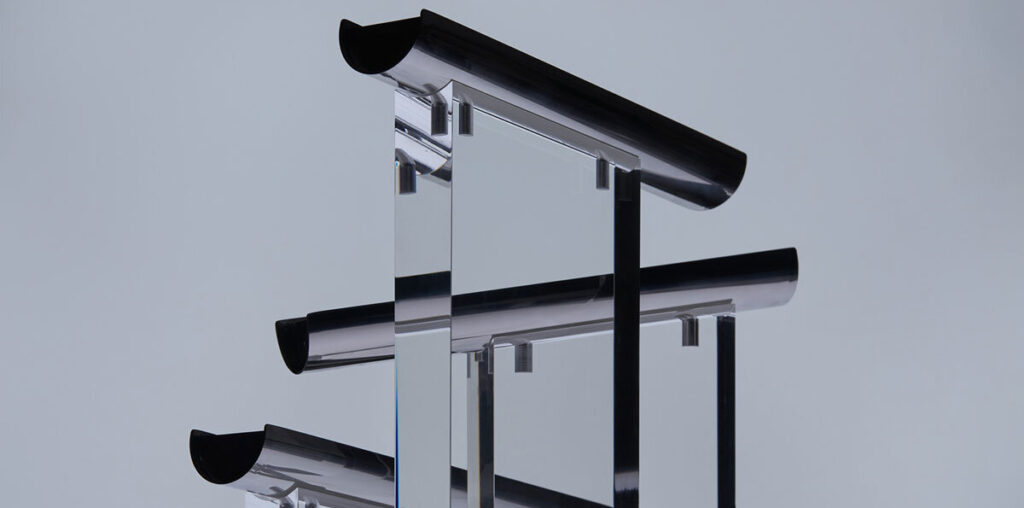UO’s Lens of Phenomena Showcases Advanced Functional Plastics
Lens of Phenomena is a series of experimental devices by Japanese design studio UO and general chemical manufacturer Mitsui Chemicals, developed to showcase the advanced performance of Mitsui’s functional plastics. Opened in October 2024, Creation Palette YAE™ highlights Mitsui Chemicals’ innovative range, allowing visitors to experience the distinctive capabilities of each plastic product through immersive, multisensory demonstrations.
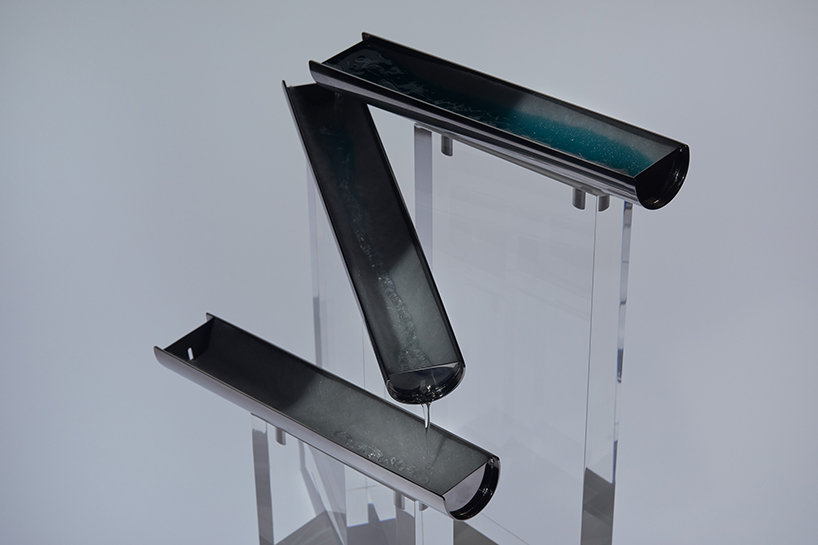
all images courtesy of UO
Interactive Demonstrations of TAFNEL™, STABiO™, and SYNTEX™
UO studio crafted three interactive demonstrations and designed the accompanying lab equipment, focusing on the unique characteristics of plastics like TAFNEL™, STABiO™, and SYNTEX™. These displays let visitors observe and interact with each material, presenting a glimpse into its specific properties.
TAFNEL™, a non-woven fabric with hydrophobic and oil-adsorbing abilities, is used to remove oil spills in the ocean and rivers. In the demonstration, visitors pour a mix of water and oil down a three-tiered incline lined with TAFNEL™ sheets, which absorb the oil and allow only water to reach the beaker below. This setup visually highlights TAFNEL™’s impressive oil adsorption and hydrophobic properties. STABiO™ is a plant-derived polyisocyanate plastic with the transparency of glass and rubber-like flexibility. Visitors handle a 300mm-diameter large lens made of STABiO™, experiencing its glass-like transparency, and refractive index its half-weight compared to glass, and its unique flexibility. SYNTEX™, a meltblown nonwoven fabric, is employed for filtration in various fields like hygiene, medical, and automotive. Here, SYNTEX™ functions as a filter paper in a pressurized setup, where visitors stir a cocoa powder solution, which is then separated into water and powder as it passes through a thin SYNTEX™ sheet, highlighting its filtration efficiency.
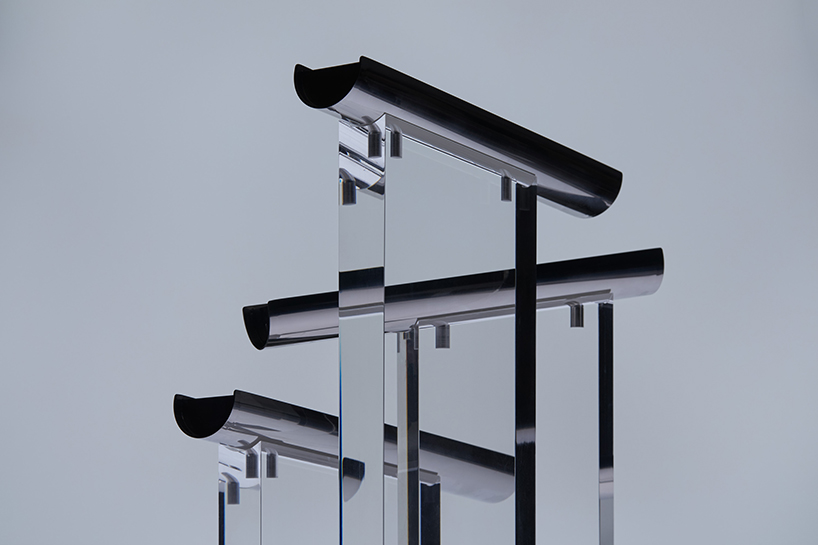
Lens of Phenomena showcases Mitsui Chemicals’ functional plastics through interactive design by UO studio
Minimalist Design devices act as a ‘Lens’ for plastics’ properties
The design of these devices is minimal and unobtrusive, utilizing transparent or reflective materials to allow the product’s properties to take center stage. Each installation functions as a ‘lens’ for observing the materials’ unique phenomena directly, keeping the viewer’s focus on the material properties themselves. These hands-on experiences offer visitors a view into the scientific ingenuity behind these materials, aiming to inspire ideas for new applications and innovations in functional plastics.
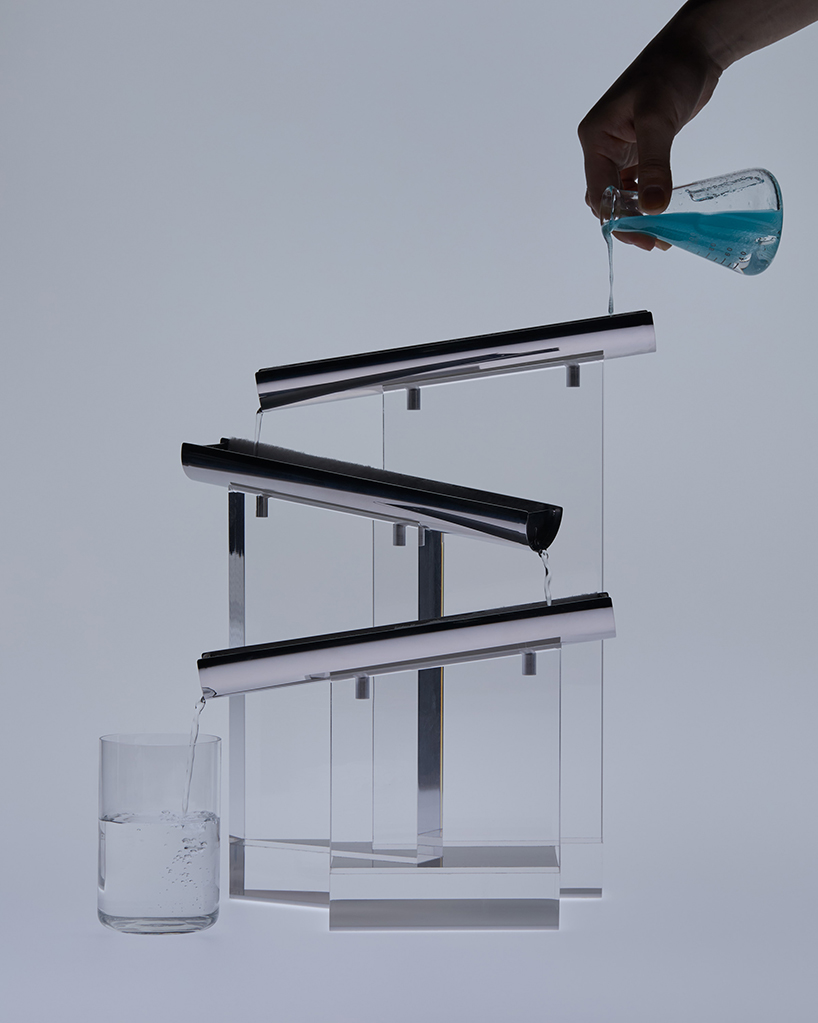
TAFNEL™ demonstrates its oil-adsorbing abilities by filtering oil from water on a three-tiered incline
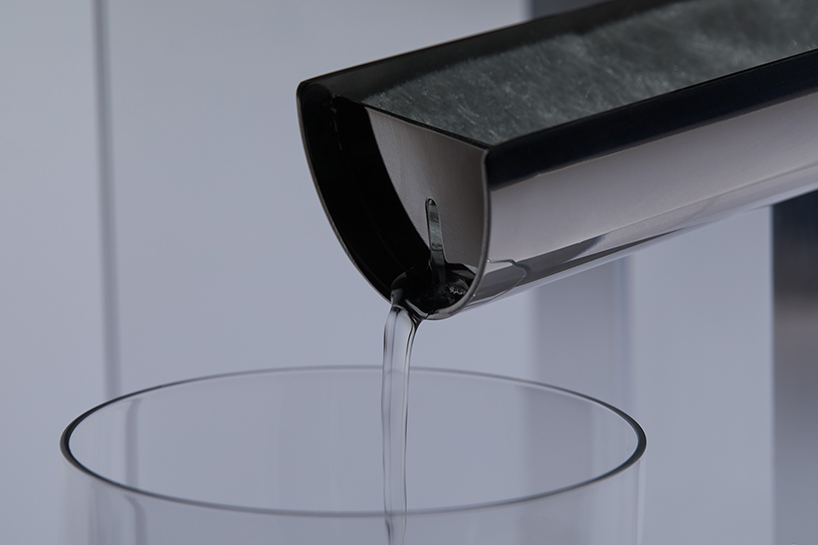
with hydrophobic properties, TAFNEL™ highlights solutions for oil spill cleanup in water bodies.
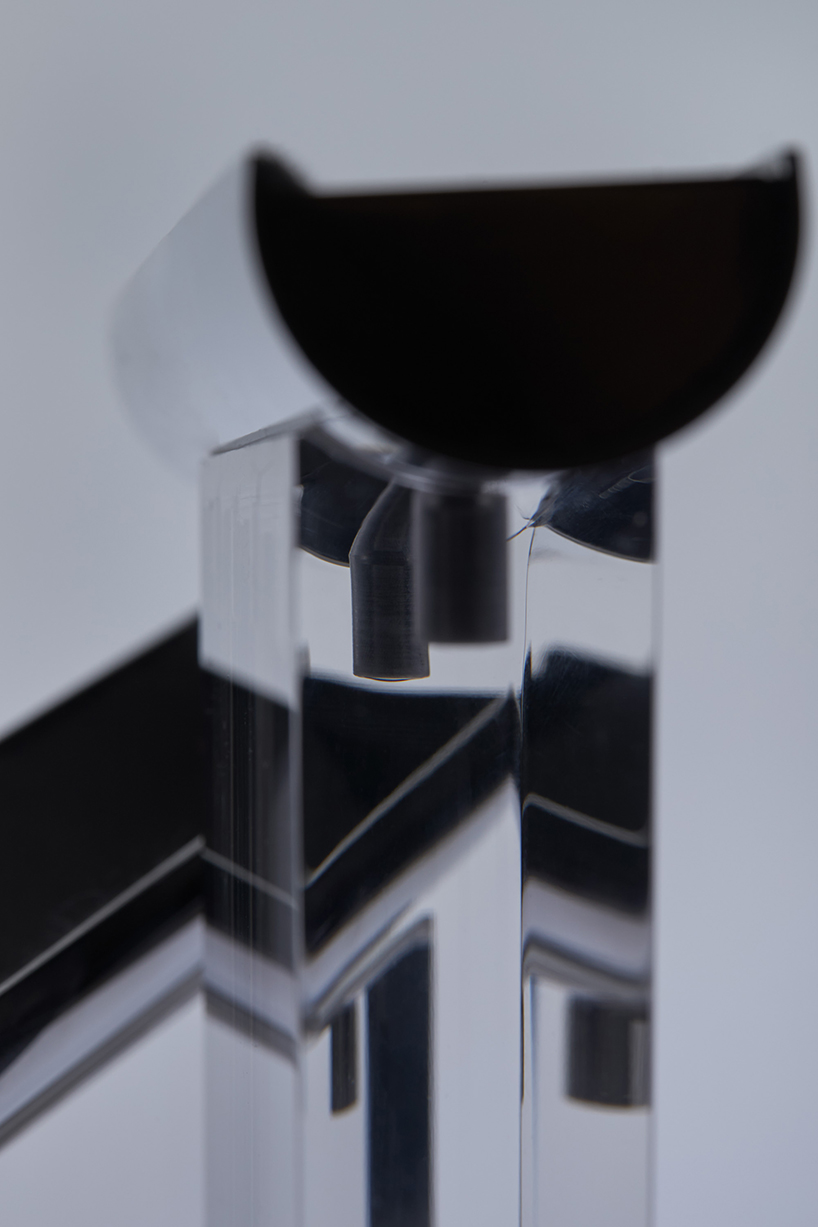
transparent materials in each installation place full focus on each plastic’s unique phenomena
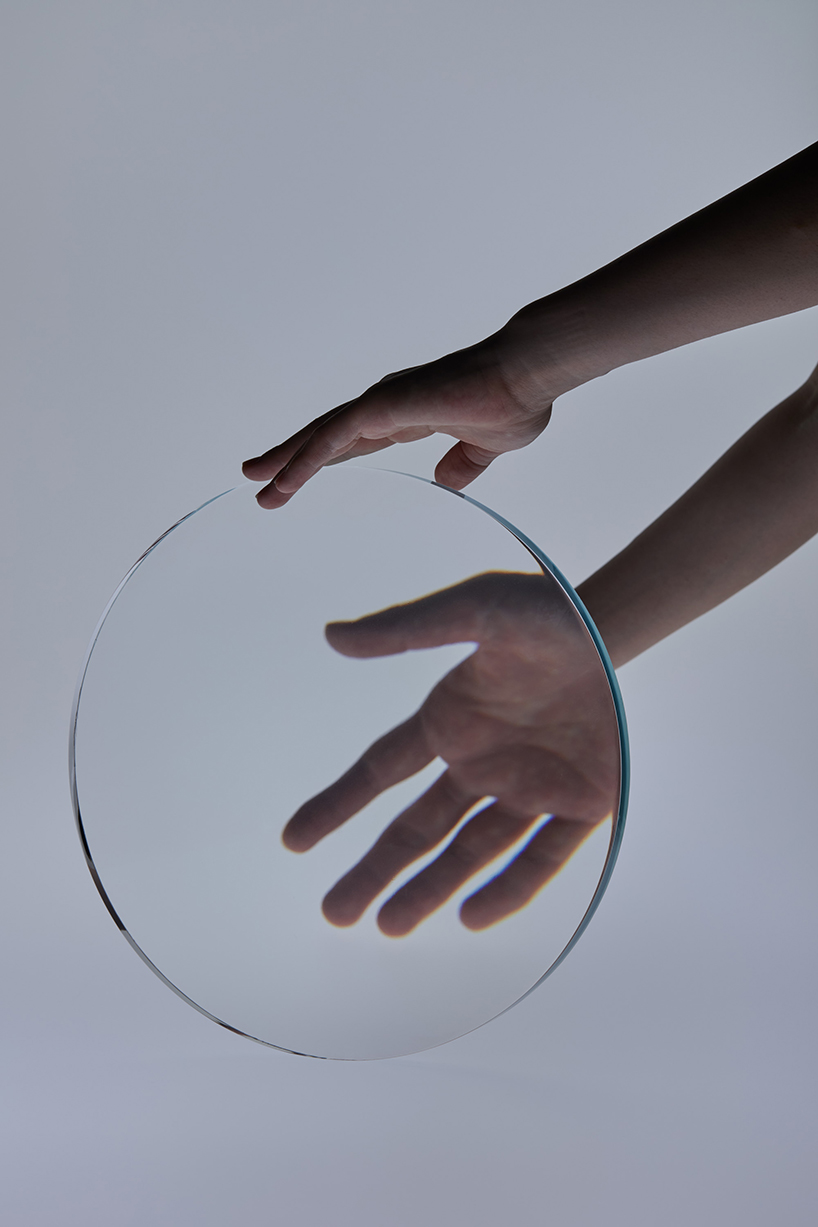
a tactile experience with STABiO™ reveals glass-like transparency and unique flexibility in a plant-derived plastic
